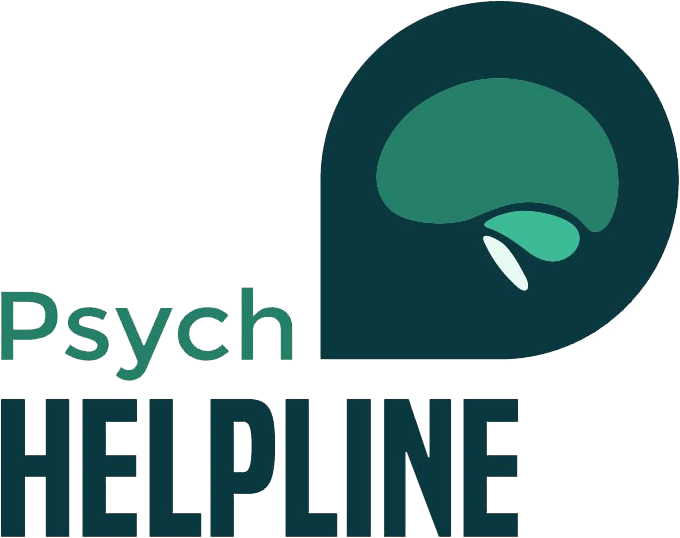Table of Contents
Undoubtedly, marriage counseling can save a drowning ship. Most couples don’t prefer to get others involved in matters related to their relationship. Although, if your marriage or romantic relationship seems to be taking a tumultuous turn you’re more likely to demand immediate foreign assistance. There should be no shame in seeking professional assistance when a romantic relationship seems to be on a rocky ledge.
Furthermore, seeking marriage counseling can save your relationship in time and save you a lot of emotional baggage in the future. Now that we’ve established the importance of seeking marriage counseling you must be aware of its do’s and don’ts. First and foremost, one must be open to the idea of deliberately putting themselves and loved one through this hectic task.

Apart from seeking consent, there are a lot more boundaries one has to establish to ensure the effectiveness of these counseling sessions. If these matters aren’t taken care of in time, seeking marriage counseling can have an adverse effect on your marriage. So, without babbling, even more, let’s enlighten ourselves with everything you need to be aware of before seeking professional help from a marriage counselor.
Have you landed on the right door?

Before skipping ahead to the counseling sessions couples must establish the professional competency of their marriage counselor. Once you’ve planned on seeking marriage counseling don’t expect yourself to land on the right door right at the start. In multiple cases, couples fail to find the right contender and find themselves moving from one marriage counselor to another.
As stated earlier marriage counseling is all about building a safe space between a couple and a professional therapist. So, it depends upon your openness and the professional capabilities of your marriage counselor whether you’d be able to establish a trustworthy bond or not.
Secondly, you might come across a lot of so-called professional marriage counselors that might want to con their way into your pockets. Consequently, a couple can suffer even more at the hands of a person who is supposed to help them. So before you end up paying any money for upcoming sessions, try to establish the professional stature and statistical success rate of the marriage counselor you are planning on visiting. Furthermore, if possible it’s essential to fact check their academic credentials as well to avoid any kind of embezzlement.
What should you expect from relationship counseling sessions?

- The early days of your counseling sessions might revolve around discussing your history as a couple and the disputes you are both struggling with. It totally depends on the kind of approach your therapist will take; either he will conduct sessions separately or all together with both parties present in the room. So before beginning the course of sessions you can ask your therapist regarding his approach.
- You’d have to be very transparent and willing to share what you are actually feeling instead of lying about important events and facts related to your relationship. During the earlier days, it’s quite normal to feel embarrassed or shy in the presence of your therapist. Building transparency with a marriage counselor is essential but building a safe space requires time too. Needless to say, you and your partner can take your time to become more comfortable.

- You must actualize that is not your counselor’s job to fix up your marriage. Instead, it is your job to fix up your marriage by listening to your counselor’s advice. Your counselor cannot just give their magical wand a swirl and fix all the issues between you and your spouse. Henceforth you must pay attention to each session and then practice what you’ve learned during your everyday life. Patience and dedication are the only keys to matrimonial bliss, so don’t expect impossible things from a professional counselor.
- Once the counseling sessions begin you’d have to adopt a different approach as compared to the one that you used to approach in the past. During counseling, your partner will receive equal chances of sharing their own truth which might or might not match with your account of events. So instead of being defensive, you’d have to adopt a more stabilized strategy by patiently listening to their share of things. Statistically speaking, most arguments break out between couples because one person isn’t willing to listen to the other party. So during counseling sessions, this particular issue is nipped from the bud right at the start. You cannot waste time arguing in the marriage counselor’s office, instead, try giving each other the time to share opinions with much more openness.
Marriage Counseling: The Essentiality Of Proper Consent

Marriage counseling can never work if both parties aren’t equally involved and interested in mending their relationship. Despite having attended multiple counseling sessions if you’re still wondering why you and your partner aren’t at peace, it’s time to ask yourself a few questions.
-
Does your partner feel pressured to seek professional help?
-
Is your partner actually willing to seek the help of a marriage counselor?
-
Has your partner been able to open up during these sessions?
-
Does your partner actually want to work on your relationship anymore?
Taking a deeper look at all of these factors might be emotionally triggering but absolutely essential. Sometimes your partner might be a bit less willing to work on your relationship as compared to you. Perhaps this might be one of the reasons by all those expensive marriage counseling sessions don’t seem to be mending your relationship.
Similarly in multiple cases, one significant other feels much more pressurized and unwillingly consents to seek outside help. Henceforth they fail to open up during these counseling sessions due to their shyness and lack of proper consent. So to avoid this issue, you must have a heart-to-heart chat with your significant other before attending the first session. Having a straightforward conversation can save you a lot of emotional baggage, time, and money.
Marriage Counseling: The Unwillingness Of A Significant Other

Most of the time our fears can get the best of us. Maybe that’s one of the reasons why you would end up reading too much into things if your partner refuses to attend a marriage counseling session. Your partner’s refusal to attend counseling sessions with you might lead you into believing that they have completely lost hope in your relationship or are planning to leave you. So, don’t let your intuition get the best of yourself instead talk to your partner regarding the reason behind their refusal.
Most of the time a significant other might be scared of talking with another person regarding your personal matters. Sometimes marriage counseling sessions can be very triggering for those people that are very conscious of their personal space. Furthermore, a lot of couples often struggle with sensitive issues like; lack of sexual drive, personal mental health issues, etc.
These issues can be much harder to talk about. So, it’s your job to understand that the reason behind your partner’s refusal doesn’t have anything to do with you but with your own self. Yes, you can’t force someone or coax someone into attending marriage counseling sessions but you can still do your own share of work by attending counseling sessions individually.
How To Prepare Yourself For Marriage Counseling

Set The Record Straight: Although it’s 2021 one cannot neglect the fact that there’s still some taboo surrounding various kinds of therapies. Whether it’s marriage counseling or a personal therapy program, the fear of getting exposed can bring forth the fear of public humiliation in people.
So before entering a marriage counseling session you can sit down with your significant other and discuss whether you want to share this important fact about your life with others or not. You can set a boundary and you must respect each other’s privacy in this regard instead of causing your significant other humiliation among peers and relatives.
Check Up On Your Comfort Level: If you have any kind of personal preferences regarding the gender of your therapist, just go ahead with that you and your partner both have mutually agreed upon. These sorts of things can help you remain as comfortable as you can be during counseling sessions. For instance, if you and your partner are looking into two different marriage counselors that are equally professionally efficient choose the one whose office is nearer to your locality. Try to ensure that the slot you’re choosing, suits both of you. Consequently, you’ll also save your time and won’t have to clear out an extra window between your everyday activities.

Set Some Goals: Obviously you’ll be entering into a therapy program expecting some sort of improvement in your relationship with your spouse. First and foremost you must ask yourself what needs to be fixed in your relationship. Then once you’ve attended a fair share of therapy sessions ask yourself if that particular problematic area has noticed any kind of improvements or not. Setting up goals before starting couples counseling sessions can give you a brief idea of whether counseling sessions are working for you or not. Consequently, you will be able to decide whether you need to change a counselor or look into other means of improvement.
Final Words
Perhaps the biggest takeaway from this article should be to understand that your therapy sessions don’t end after you leave your therapist’s office. Needlessly, the real work is done while you’re at home with your spouse. You must practice what you understood during those counseling sessions at your home instead of only focusing on it during those two or three-hour-long counseling sessions. Statistically speaking marriage counseling has worked for countless couples in the past so there is always a ray of hope for every couple like you.
If you struggle with personal psychological or mental issues it can have an even adverse impact on your marriage. So, if your counselor instructs you to attend separate therapy sessions for those particular issues don’t render that advice useless. Perhaps working on your individual issues might have positive results on your relationship with your spouse. We hope that this article helped to give you a proper heads up regarding marriage counseling.
FAQs
What kind of questions do marriage counselors ask in the beginning?
Although every counselor’s approach varies, there are a few textbook questions that you might be asked right at the beginning of your sessions. Some of these questions might seem to embarrass you but they are absolutely essential to your case. These questions may include;
- Are you absolutely sure about giving your relationship another chance?
- Are you willing to dedicate time and energy to working on your relationship?
- Are both of you willing to spice things up in the bedroom?
- Are you open to the idea of an open marriage or relationship?
- Has your partner cheated on you in the past?
Does marriage counseling actually work?
Statistically speaking the success rate of most marriages after receiving marriage counseling is pretty high. Around 78% of couples that received marriage counseling before approaching the option of divorce end up with a happy ending Meanwhile 30% of the total population that encounters marriage counseling ends up divorcing despite attending counseling sessions.
When should I drop out of marriage counseling?
If you feel like marriage counseling seems to be doing no good to you and your spouse’s relationship it’s time to bid farewell. Furthermore, if you are unable to create a strong bond with your counselor it’s better to opt out of those sessions. Some couples also prefer to stay in contact with a marriage counselor even after things return to normal between them. So it all depends on how you are feeling and at what stage you and your spouse are standing.
What is the difference between marriage counseling and couples therapy?
Basically, marriage counseling focuses more on present-day events that might be creating diversions between a couple. On the other side of the spectrum, couples therapy focuses both on the past and the present. For example trust issues linked to an extramarital affair from the past etc.






